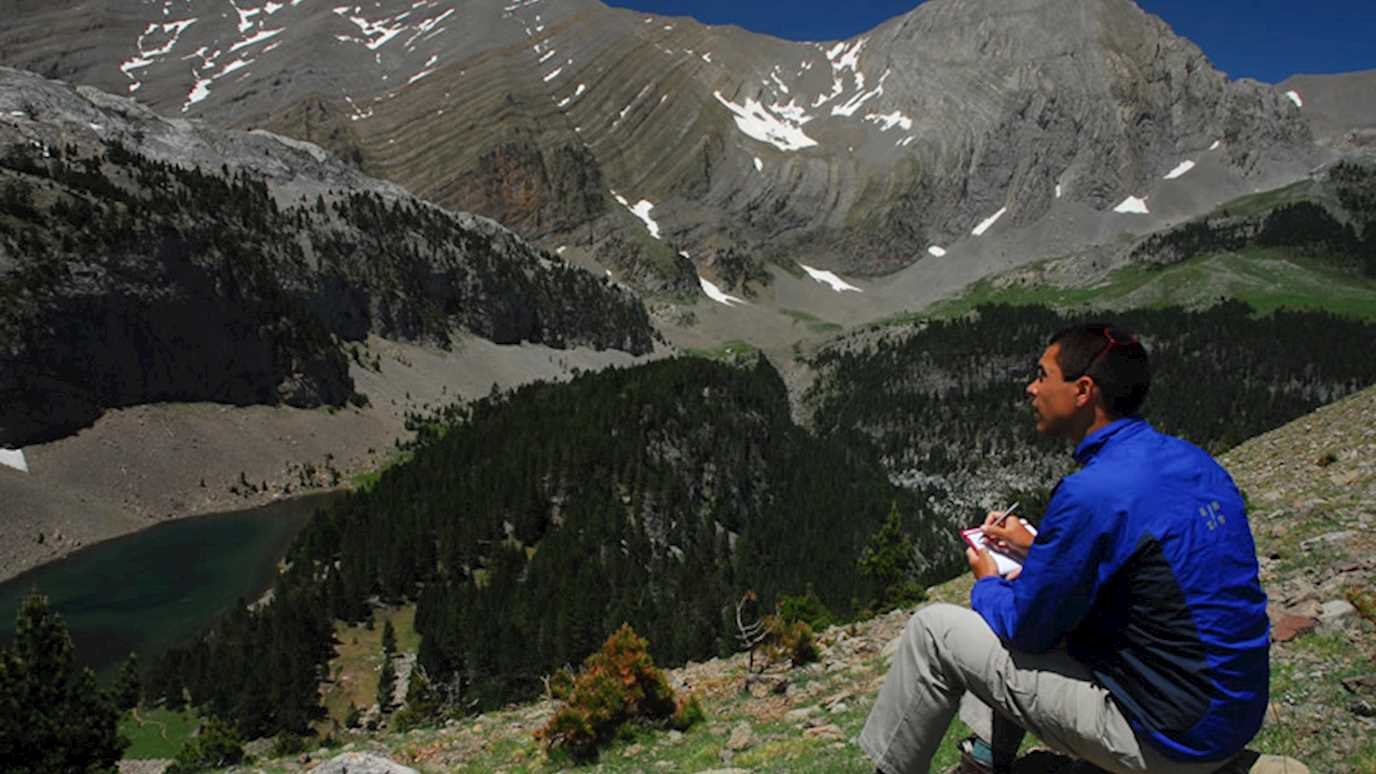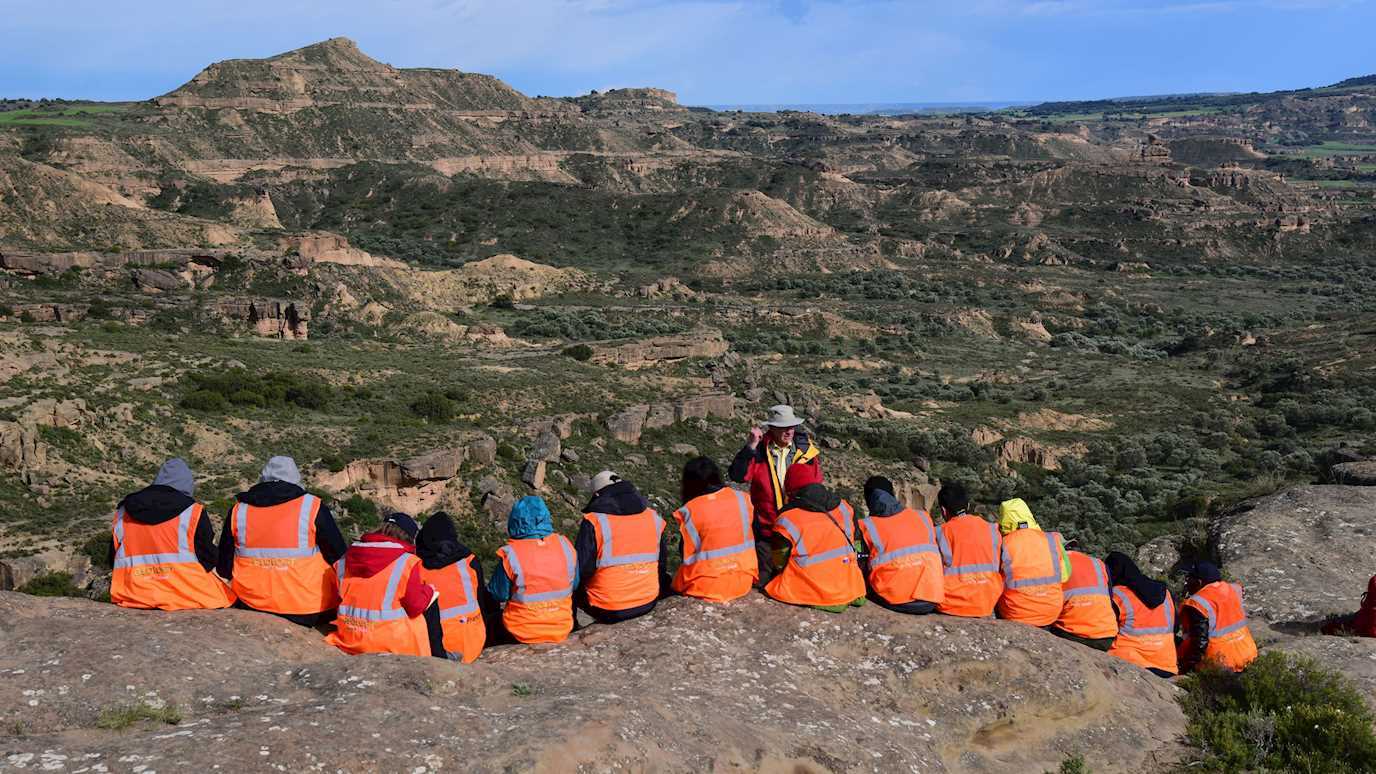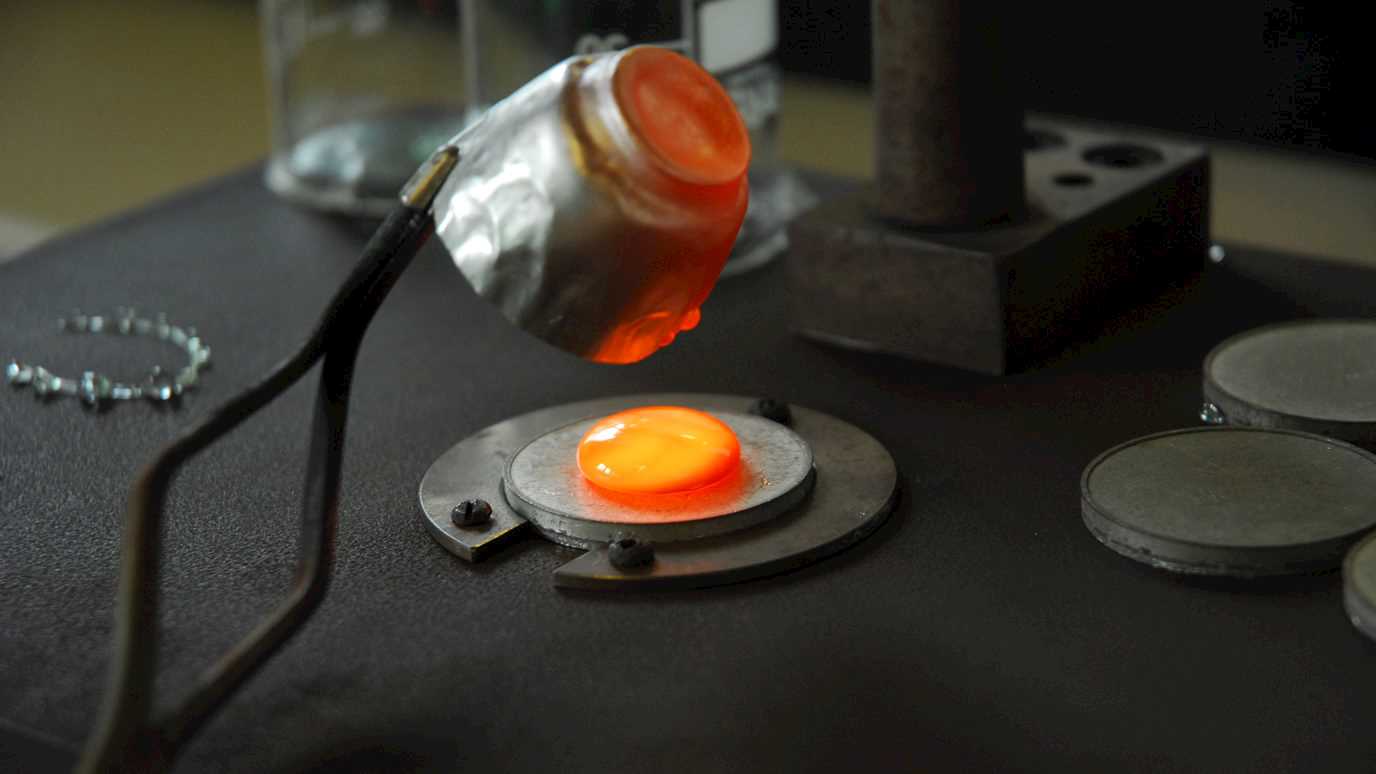Postgraduate Research
The Department of Earth Sciences is one of the leading centres of research in the UK. In the most recent national Research Excellence Framework (REF2021), 88% of our research outputs and 100% of our research environment were classified as world leading and internationally excellent in terms of originality, significance and rigour.
Our postgraduate research activities strengthen our vital links with a wide range of industrial and commercial partners within the energy, mineral, extraction, waste management and water industries. These links provide support for research, employment for graduates and work experience opportunities in industry.
Department research activity spans diverse topics designed to investigate the past, present and future of planet Earth and its resources. Our work ranges from ground-breaking blue-sky research, to very applied projects with high societal impact deliverables for industrial and government sponsors. PhD research opportunities span this range of activities and are supported by UKRI, the GeoNetZero CDT, industrial and College studentships.
Prospective students are invited to contact individual members of staff in the department in the first instance to discuss potential research projects.
Two home fee studentships for Earth Sciences MSc by Research
Royal Holloway, University of London is inviting applications for MSc by Research degrees in fields aligned to expertise in the Department of Earth Sciences. Deadline for applications: 31st July 2024.
➣ Staff Research Interests
- Prof Jürgen Adam (email) – Geomechanics of brittle continental deformation, Coupled tectonic and sedimentary processes, Salt tectonics, Physical modelling of fault-fracture processes, Development of physical modelling and strain monitoring techniques, Tectono-stratigraphic analysis of Atlantic margin basins, Subsurface energy storage.
- Dr Queenie Hoi Shan Chan (email) - Meteorites; planetary science; space exploration missions; cosmochemistry; organic geochemistry; analytical chemistry; origin of life; astrobiology.
- Prof Domenico Chiarella (email) – Sedimentology. Tidal deposits, mixed siliclastic-bioclastic sediments, sedimentary petrography and provenance analysis, tectonic and sedimentation of coarse-grained deltas, seismic interpretation and attribute analysis, reservoir characterisation.
- Dr Kevin (Clem) Clemitshaw (email) – Sources, sinks and trends of air pollutants with health and climate impacts; fluxes of greenhouse gases from soils and surface waters; soil biodiversity
- Prof Margaret Collinson (email) – Cenozoic floras, vegetation and climate; floras of the Cretaceous/Tertiary boundary event; evolution of wetland communities; fossil history of mammal/plant interactions; megaspore ultrastructure and the evolution of heterosporous plants; palynofacies; experimental charcoalfication; organic chemistry and plant-derived biomarkers for environmental change.
- Prof Alex Dickson (email) – Trace metal geochemistry and isotope geochemistry of marine sedimentary deposits, palaeoclimate and palaeocenaography, environmental change during the Cenozoic and Mesozoic climate events.
- Prof Howard Falcon-Lang (email) – The evolution of terrestrial ecosystems and palaeoclimates. Current projects include the origin and early evolution of reptiles in mid-carboniferous, the collapse of the first rainforests in Late Pennsylvanian times and the explosive appearance of flowering plants in Cretaceous Period.
- Dr Rebecca Fisher (email) – Modern climate change, measurement of greenhouse gases in atmosphere, emissions calculations, stable isotope analysis of methane for source identification.
- Dr Richard Ghail (email) - Radar investigations of tectonic processes on Venus and Earth's continental areas, especially the London platform, applied to Civil Engineering activities. Lead Scientist on EnVision, an ESA/NASA mission to use radar to determine rates of geological activity on Venus and learn why it has evolved so differently to Earth.
- Dr Nathalie Grassineau (email) – Early life and the rise of oxygen in the Archaean, be determining microbial activity using carbon and sulphur isotopes. Volcanic activity and hydrothermal vents in spreading ridges, using stable isotopes. Director of the Wet Geochemistry laboratory, analysing geological, environmental and archaeological materials for major and trace elements.
- Prof Agust Gudmundsson (email) – Volcanotectonics: dyke emplacement, caldera formation, and volcanic eruptions. Seismotectonics: fault-zone development and earthquakes. Fluids in the earth's crust. Geothermal energy and solar energy.
- Prof Martin King (email) – Snow, ice and atmospheric chemistry and physics; the effect of atmospheric aerosol on modern climate change; the calibration of Earth observing satellites using sea ice and desert dust.
- Dr Dave Lowry (email) – Use of stable isotopes to understand geological, environmental and atmospheric problems, including sources of greenhouse gases in the atmosphere, formation of mineral deposits and intrusions and development of the Neoproterozoic rocks of Scotland. Development of new instrumentation for greenhouse gas analysis.
- Dr Christina Manning (email) – Application of whole rock and mineral geochemistry to better understand open system processes occurring in shallow level magma storage systems and they effect eruptive behaviour.
-
Dr Jonathan Paul (email) - Sustainable groundwater resources, tectonic geomorphology, surficial manifestations of mantle convection (e.g. dynamic topography), integration of social science techniques (e.g. citizen science), natural hazard risk reduction and resilience building, development of new sensing technologies for water resource management.
-
Dr Nicola Scarselli (email) – Seismic geomorphology, structural geology and subsurface evaluation.
- Prof David Waltham (email) – Mathematical and computer modelling of Earth-science relevant processes ranging from sand-grains to planetary systems
- Dr Ian Watkinson (email) – Structural geology, particularly active tectonics, ductile shear zones, exhumation of metamorphic rocks and the major strike-slip faults of SE Asia. Geohazards and urban seismic vulnerability.
➣ MSc in Earth Sciences by Research
This programme is offered to prospective students who wish to pursue research in a selected field of the Earth Sciences for a period of one calendar year full time or two calendar years part time and be awarded a Masters degree.
The main focus of the degree programme is an independent research project, chosen by the student, developed into a project proposal through discussion with a chosen supervisor at Royal Holloway. It may be possible to arrange co-supervisors from other Universities, Research Institutes or Industry, to benefit from their specialist expertise. Students will receive training in research skills, including data collection, data handling and analytical techniques as well as transferable and presentation skills.
During your studies you may attend taught courses if they are relevant to your training needs. Students will have access to the wide range of other training opportunities available in the University including the Researcher Development Programme (RDP).
Students may be employed as postgraduate demonstrators if there are opportunities available. In this situation they may attend the course 'Skills of Teaching to Inspire Learning' (inSTIL) which, on successful completion, results in accreditation as an Associate of the Higher Education Academy.
The main outcome of the degree programme is a piece of independent research presented in the form of a dissertation. Upon completion of the programme students will have gained experience of research and presentation of material in the earth sciences which equips them to publish work in international scientific journals.
Prospective students should contact individual members of staff in the department in the first instance to discuss potential research projects. (See staff research interests above)
General questions may be directed to the Doctoral School - doctoralschool@rhul.ac.uk
Find out more about fees and funding.
It should be noted that there are no funded places available for this degree programme but prospective students resident in England, Wales, Scotland, Northern Ireland and International (including EU) students, may be eligible for a government loan.
➣ Applying
The cost of your research needs should be discussed in advance with your supervisor and appropriate sources for this funding should be identified.
For more information please email the project supervisor.
Applications will require you to give the name and contact details of one referee, plus a cover letter and CV. The departmental policy is to offer all available studentships to the best applicants across the range of PhD topics on offer.
Applicants are requested to send an additional copy of their CV directly to the lead supervisor of the project in which they are interested. Please also contact the supervisor if you have any questions about the project itself.
Applications are welcome at any time from students with sources of sponsorship.
Applications should be made via the Royal Holloway Direct website























